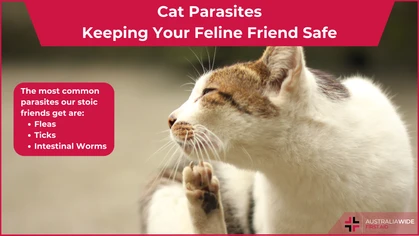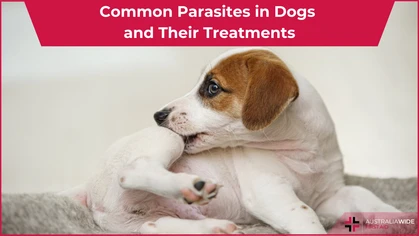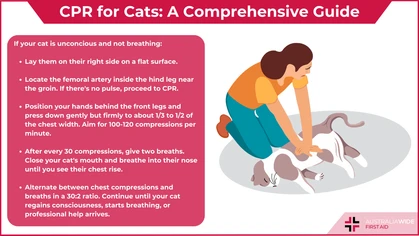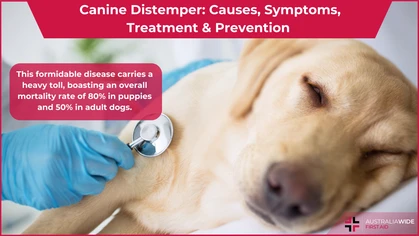Understanding Allergies in Aussie Dogs: Signs, Symptoms, and Solutions

Pets
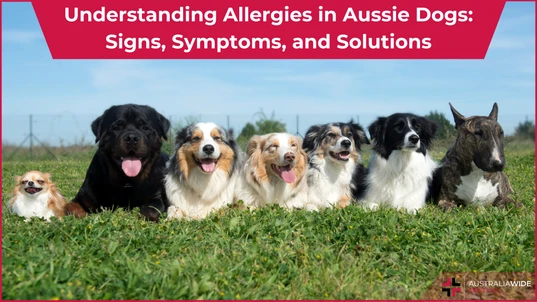 Australia is known for its diverse fauna, scenic landscapes, and a pet-loving culture.
Amongst the most cherished companions are dogs, whose well-being is paramount to Australian pet owners.
However, like humans, our canine friends are susceptible to allergies, which can significantly affect their quality of life.
This article aims to shed light on common allergies in dogs, their signs and symptoms, treatment options, and advice on when to consult a veterinarian.
Australia is known for its diverse fauna, scenic landscapes, and a pet-loving culture.
Amongst the most cherished companions are dogs, whose well-being is paramount to Australian pet owners.
However, like humans, our canine friends are susceptible to allergies, which can significantly affect their quality of life.
This article aims to shed light on common allergies in dogs, their signs and symptoms, treatment options, and advice on when to consult a veterinarian.
Common Allergies in Australian Dogs
Allergies in dogs manifest when their immune systems begin to recognize certain everyday substances—or allergens—as dangerous. These allergens can range from flea bites to food ingredients and even to the pollen from Australia's many plants and trees. Here are some of the most prevalent canine allergies encountered by pet owners down under: 1. Flea Allergy Dermatitis This is a hypersensitivity to flea bites, more specifically to flea saliva. Even a single bite can trigger an intense allergic reaction in your dog. 2. Atopic Dermatitis Atopy refers to environmental allergies. Dogs may react to dust mites, mould, or pollens from grasses, trees, and flowers—common in Australia's rich natural environment. 3. Food Allergies Some dogs develop allergies to specific food components such as beef, chicken, soy, or grains. Unlike in humans, however, true food allergies are rare in dogs. 4. Contact Allergies Contact allergies arise when a dog's skin reacts to something it touches, such as certain plants, chemicals, or even the fabrics used in bedding.
Signs and Symptoms of Allergies in Dogs
Recognizing the signs and symptoms of allergies can be tricky, as they often resemble other conditions. Nevertheless, here are the common indicators that your dog might be suffering from an allergy:- Persistent Itching – Allergies often cause dogs to scratch excessively, leading to red, irritated skin or even hair loss.
- Skin Inflammation – Look for patches of red skin, hives, or rashes, particularly around the face, paws, and underbelly.
- Chronic Ear Infections – Dogs with allergies are prone to recurrent ear problems signified by head shaking or scratching at the ears.
- Respiratory Issues – In some cases, especially with atopic dermatitis, dogs may exhibit sneezing, coughing, or wheezing.
- Gastrointestinal Upsets – Food allergies can lead to symptoms like vomiting and diarrhoea, which require prompt attention.
Treatment Options for Allergies in Dogs
1. Flea Control For flea allergies, the first step is effective flea control. This involves not only treating the dog but also managing the environment to prevent flea infestations. 2. Avoidance Identifying and avoiding the allergen, wherever possible, especially with contact and food allergies, can help manage symptoms. 3. Medications Various medications, including antihistamines, corticosteroids, or more advanced therapies like immunomodulatory drugs, can be prescribed by vets to help control allergic reactions. 4. Immunotherapy Veterinarians may suggest allergy shots or sublingual immunotherapy, which involve exposing the dog to small amounts of allergens to gradually build up tolerance. 5. Dietary Changes For food allergies, an elimination diet—where you feed your dog a simplified diet and then reintroduce food items to pinpoint the allergy—can be effective. 6. Topical Treatments Special shampoos, creams, or ointments can alleviate skin irritation and inflammation.
When to See a Vet
If your dog shows any signs of allergy, it is important to seek veterinary advice. Allergies can be uncomfortable and even painful for dogs, and without appropriate treatment, they can lead to more severe health issues. A vet can perform tests to identify the specific allergen and recommend a comprehensive treatment plan. Additionally, if you observe any of the following symptoms, visit your veterinarian promptly:- Extreme swelling or inflammation
- Difficulty breathing
- Constant foot chewing and persistent ear scratching
- Non-stop licking of a particular body part
- Any behaviour that suggests your dog is in distress
Final Thoughts
Living with allergies can be tough for your canine companion, but with careful observation and proper veterinary care, they can lead a happy and healthy life. Australian pet owners must be cognizant of the potential for allergies due to the unique flora, fauna, and climate in the region. Remember, prevention is often the best medicine. Regular cleaning, proper diet, and routine vet check-ups can minimize the risk of allergies and ensure your pet lives a full and vivacious life. And when allergies do occur, understanding and responding to the symptoms can make all the difference. Love and vigilance are the hallmarks of excellent pet care; managing allergies is no different. If you suspect your dog may be suffering from an allergy, take heart in the fact that with modern veterinary medicine, there are ample opportunities to relieve your furry friend's discomfort. For the love of our loyal companions, staying informed and proactive in the face of allergies can affirm the bond we share with our beloved dogs—a testament to the care and companionship they so depend on us to provide.
Originally published at
https://www.australiawidefirstaid.com.au/resources/allergies-in-dogs
as part of the Australia Wide First Aid Articles Library



